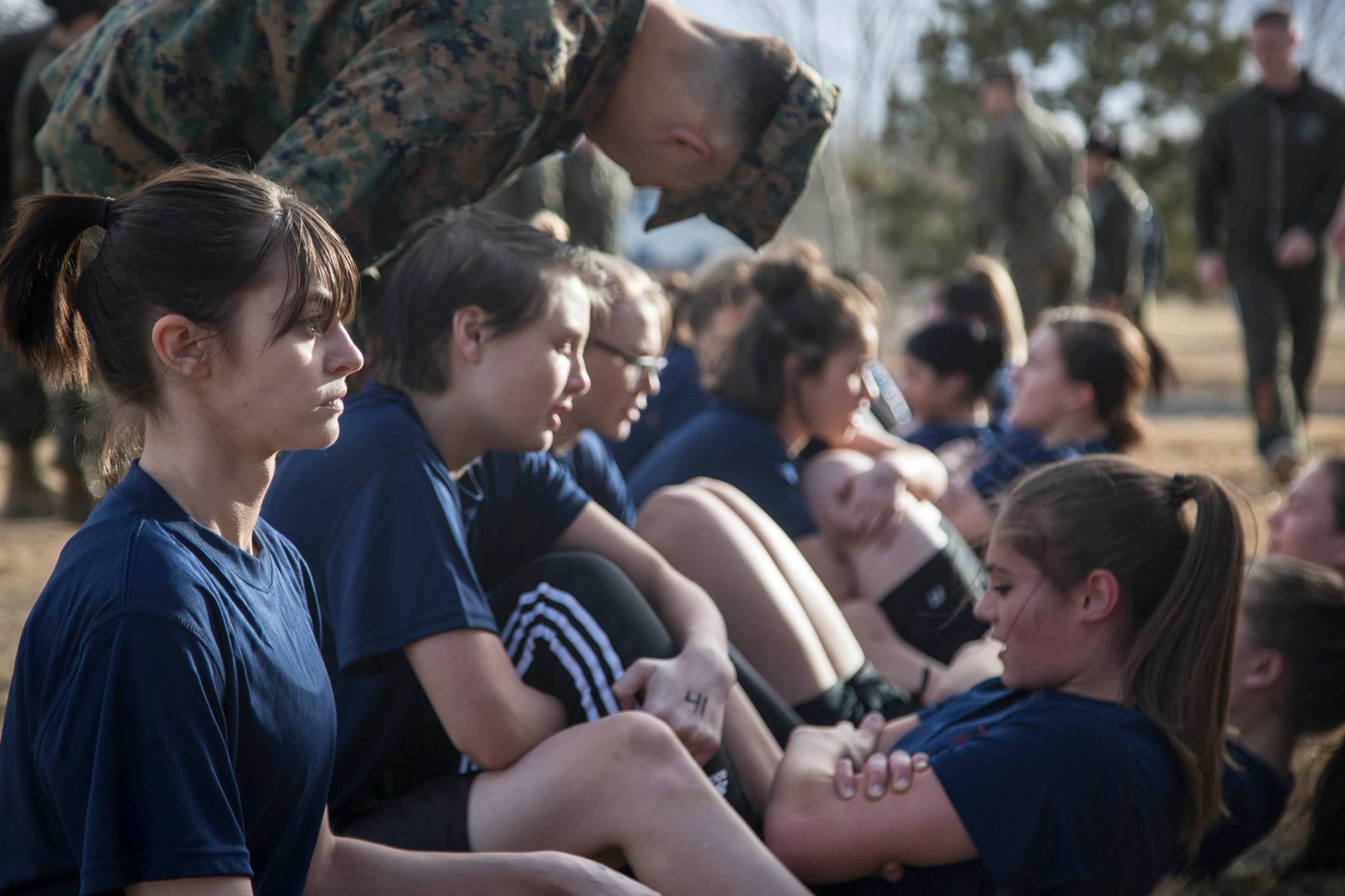The Marine Corps' longstanding tradition of having two-tiered fitness requirements for men and women aims to ensure fairness, but a growing chorus of critics say it creates a double standard and implies that female Marines are not as physically capable as men.
It's another political battle inside the Corps over gender and standards that stems in part from last year's controversial decision to allow women to serve in combat units traditionally restricted to men.
The Marines recently began imposing gender neutral physical requirements for specific jobs, a move designed to moot concerns that physical standards will suffer as women integrate into combat units. Men and women in combat arms career fields must meet the exact same benchmarks.
Yet the annual fitness requirements — the Physical and Combat Fitness Tests that can be a key factor in promotions across the force — continue to enforce different sets of standards for men and women. Once viewed to help women succeed in the Corps, that double standard is now considered by many a problem.
"When individuals start out at the recruiting station and they see that women are held to lower standards and have a much lower fitness requirement to max out the PFT, that causes cultural reverberations down the line," said retired Lt. Col. Kate Germano, who was in charge of training female recruits at Parris Island. When women face lower expectations, they end up being less competitive than their male counterparts, Germano told Marine Corps Times.
"We end up letting the institution down because we have an end product that isn’t fit, isn’t strong and can’t compete with the men — and how disappointing is that, from a national security perspective?" she said.
For the routine fitness tests that Marines face, the gap between standards for men and women is clear:
- Men must complete a three-mile run within 18 minutes to get a maximum score on that portion of the PFT, while women younger than 40 have up to 21 minutes.
- For Marines between 17 and 20 years old, men must do 20 pullups to get a maximum score; women must do seven.
- On the CFT, men must lift a 30-pound ammunition can between 106 and 120 times within two minutes to get a max score. Women must lift the can between 66 and 75 times for a maximum score.
Right now, the Marine Corps has no plans to create a universal PFT and CFT for both male and female Marines, said Capt. Joshua Pena, a spokesman for Training and Education Command. A Defense Department instruction allows the services to adjust physical fitness standards by gender and age.
Many experts say the Marines' current policy makes sense. There’s clear scientific evidence that men on average are physically stronger than women.
For example, when male and female Marine recruits arrive at Parris Island boot camp, they undergo a gender-neutral strength test — and they do not perform equally.
For the men, about 98.6 percent pass the test. For women, it’s 92.7 percent.
It would be too difficult to determine a single physical standard for men and women — and most likely, such a standard would be too difficult for women to reach, said Brian Schilling, chair of kinesiology and nutrition sciences at the University of Nevada, Las Vegas.
"It is biologically correct to say that ‘physically fit’ for a woman is different than ‘physically fit’ for a man," Schilling said. "This is based on sex differences in body composition, muscular strength, muscular endurance, cardiorespiratory endurance, etc."
Both the PFT and CFT are meant to measure a Marine’s overall fitness, not how ready they are for combat, said Schilling.
The issue of gender roles and standards has never been more contentious inside the Marine Corps.
The integration of women into combat units began last year and is moving slowly. The top brass is fighting a sexism in the ranks amid allegations that some male Marines were posting online nude photos of female Marines. And the Corps is facing political pressure to integrate men and women into the same boot camp just as the other three military services have done.
Those concerns and controversies are leading to questions about the fitness standards, which critics say may be fueling a culture of misogyny inside the force.
"Women, from Day One, do not have to do the same PFT as men," said Maximilian Uriarte, a Marine veteran and the creator of the "Terminal Lance" comic strip. "
"To men, that’s immediately like: ‘Oh, they have not accomplished the same thing I have … Therefore, they do not rate the same respect that I do,’" he said.
One way to erase the gender gap, Uriarte said in an interview with Marine Corps Times, would be to have women meet the same standards as men on the PFT and CFT.
"I think you’d probably lose a lot of women, but the ones you’d keep would be really stellar, fighting, fit Marines that the men would respect on that level," he said.
Former Marine Maj. Kyleanne Hunter said female Marines can meet higher physical standards if they are given time to train properly. Right now, women are held to lower standards, the former H-1 Cobra helicopter pilot said. She recalls arriving at Officer Candidates School and being able to run three miles in 16 minutes, but because she was a woman, she was always put in the back of the group runs.
By the time she completed officer training, she could barely run three miles in 20 minutes, as she was never given opportunities to improve, she said.
"If somebody says, 'Don't run faster than 21 minutes,' it's going to be really hard to get an individual to run faster than 21 minutes," Hunter said.





